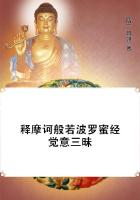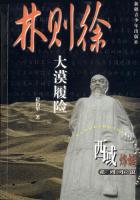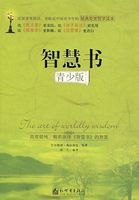If Mill's doctrine leads to an impossible strictness in one direction,it leads to less edifying results in another.We have omitted 'motive'and come to the critical question,How,after all,is the moral code to be enforced?By overlooking this question and declaring 'motive'to be irrelevant,we get the paradox already accepted by Bentham.His definition of virtue is action for the good of others as well as of ourselves.In what way is the existence of such action to be reconciled with this doctrine?What are the motives which make men count the happiness of others to be equally valuable with their own?or,in the Utilitarian language,What is the 'sanction'of morality?After all Bentham's insistence upon the 'self-preference principle'and Mill's account of selfishness in his political theory,we are suddenly told that morality means a lofty and rigid code in which the happiness of all is the one end.Here again Mill is entangled by the characteristic difficulty of his psychology.To analyse is to divide objects into separate units.When he has to do with complex objects and relations apparently reciprocal,he is forced to represent them by a simple sequence.The two factors are not mutually dependent but distinct things somehow connected in time.One result is his account of 'ends'or 'motives'(the two,as he observes,are synonymous).142The end is something to be gained by the act,the 'association'of which with the act constitutes a 'desire.'This,we have seen,always refers to the future.143In acting,then,I am always guided by calculations of future pleasures or pains.I believe this to be one of the most unfortunate because one of the most plausible of Utilitarian fallacies.If we are determined by pains and pleasures,it is in one sense as contradictory to speak of our being determined by future pains and pleasures as to speak of our being nourished to-day by to-morrow's dinner.The 'future pleasure'does not exist;the anticipated pleasure acts by making the present action pleasant;and we then move (as it is said)along the line of least resistance.Certain conduct is intrinsically pleasurable or painful,and the future pleasure only acts through the present foretaste.When,however,we regard the pleasure as future and as somehow a separable thing,we can only express these undeniable facts by accepting a purely egoistic conclusion.We are,of course,moved by our own feelings,as we breathe with our own lungs and digest with our own stomachs.But when we accept the doctrine of 'ends'this harmless and self-evident truth is perverted into the statement that our 'end'must be our own pleasure;that we cannot be really or directly unselfish.The analysis,indeed,is so defective that it can hardly be applied intelligibly.
Hume observes that no man would rest his foot indifferently upon a stool or a gouty toe.The action itself of giving pain would be painful,and cannot be plausibly resolved into an anticipation of an 'end.'This,again,is conspicuously true of all the truly social emotions.Not only the conscience,but the sense of shame or honour,or pride and vanity act powerfully and instantaneously as present motives without necessary reference to any future results.The knowledge that I am giving pain or causing future pain is intrinsically and immediately painful to the normal human being,and the supposed 'analysis'is throughout a fiction.Mill,however,like Bentham,takes it for granted,but perceives more clearly than Bentham the difficulty to which it leads.How,from a theory of pure selfishness,are we to get a morality of general benevolence?The answer is given by the universal 'association.'We are governed,he holds,by our own emotions;our end is our own pleasure,and we have to consider how this end dictates a desire for general happiness.He expounds with great vigour the process by which the love of friends,children and parents and country may be gradually developed through the association of our pleasures with the fellow-creatures who caused them.J.S.Mill regards his exposition as 'almost perfect,'144and says that it shows how the 'acquired sentiments'--the moral sentiments and so forth --may be gradually developed;may become 'more intense and powerful than any of the elements out of which they may have been formed,and may also in their maturity be perfectly disinterested.'James Mill declares that the analysis does not affect the reality of the sentiments analysed.Gratitude remains gratitude,and generosity generosity,just as a white ray remains white after Newton had decomposed it into rays of different colours.145Here once more we have the great principle of indissoluble association or mental chemistry.
Granting that the emotions so generated may be real,we may still ask whether the analysis be sufficient.
James Mill's account of the way in which they are generated leaves a doubt.
Morality is first impressed upon us by authority.Our parents praise and blame,reward and punish,thus are formed associations of praise and blame with certain actions.Then,we form further associations with the causes of praise and blame and thus acquire the sentiments of 'praise-worthiness'and 'blame-worthiness.'The sensibility to praise and blame generally forms the 'popular sanction,'and this,when praise-worthiness is concerned,becomes the moral sanction.146Here we see that morality is regarded as somehow the product of a 'sanction';that is,of the action of praise and blame with their usual consequences upon the individual.
His sensibility causes him through association to acquire the habits which generally bring praise and blame;and ultimately these qualities become attractive for their own sake.The difficulty is to see where the line is crossed which divides truly moral or altruistic conduct from mere prudence.















